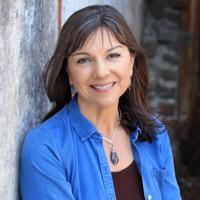Making Holistic Connections Between the Voice, Body & Emotions
Tuesday 26th March 2024, 5:00 PM - 7:00 PM (London Time)
Discover the rich and expanding capabilities possible within you as this course introduces you to the Emotional Body® method’s approach to making physical, vocal and emotional connections. The emotional effector patterns will be introduced as the primary approach during this two-hour introductory lesson. References will be made to how Estill Voice Training® and gentle movement lessons inspired by the Kinēsa® process of somatic education can also assist individuals in expanding their expressive capabilities and developing harmonious communications throughout the body.
Emotional effector patterns are precise breathing and muscle manipulations linked to specific emotional feelings. Each effector pattern has three parts: (1) a breathing pattern, (2) facial expression, and (3) postural attitudes. All three parts work together to create one effector pattern, or biological code, that directly stimulates nerves, cells and organs. The resulting pattern works like a key that opens the door for one particular basic emotion to express throughout the entire body. The patterns are based on scientific findings, independent of gender or social heritage influences, and result in the expression of basic universal emotions and modes of expression.
Estill Voice Training® is an evidence-based system that promotes body awareness and mindfulness and provides exercises designed to develop control of specific anatomical areas of voice production that contribute to the sound and feeling of the voice.
Kinēsa is a somatic method that combines kinaesthetic movement lessons with physical emotion regulation techniques and somatic sensing methods, all designed to assist the individual in raising their awareness of their individual habits, and helping them assess and consider opportunities to form new behaviours that might improve their overall wellbeing.
During this lesson participants will explore…
- Emotional Effector Patterns and how they could impact the physical and vocal expression;
- Vocal expressions of emotion and feelings, and the impact internally and externally of what occurs with the shared energy that sounded expressions create;
- Fully connecting the voice and body with the patterns, along with intentions, desires, and actions in the creation of more consistent, holistic expressions;
- Concepts around physical, vocal and emotional personal tolerance levels, identifying and setting personal boundaries, and considering consent-based agency around emotional expressions;
- Centering, destressing, revitalizing and restoring the nervous system to achieve a calm and restful state, and a quiet mind.
Professor Laura Bond
Laura Bond is a Full Professor of Drama and Interdisciplinary Studies at UNC Asheville teaching acting, vocal and physical expression, voice-over, voice acting, and emotional expression.

Attend this course for as little as £22 as part of the Voice Professional Training CPD Award Scheme.
Learn MoreSorry, this is an archived short course...
We have plenty of upcoming short courses coming soon. See details of some of them below or look at the full list of short courses.


Tuesday 3rd March 2026
5:00 PM - 7:00 PM
(London Time)
Sex differences in VOICE!

Dr Richard Lissemore
This two-hour workshop, led by performer, articulatory phoneticist, and voice physiologist, Dr. Richard Lissemore, will examine in detail the role that biological sex plays in the perception and pedagogy of singing voices. We'll consider how parameters such as anatomy, physiology, articulation, resonance, and radiated acoustics influence the perceptions and pedagogical decision-making of singing teachers.

Wednesday 4th March 2026
1:00 PM - 2:00 PM
Wednesday 11th March 2026
1:00 PM - 2:00 PM
Wednesday 18th March 2026
1:00 PM - 2:00 PM
Wednesday 25th March 2026
1:00 PM - 2:00 PM
Wednesday 1st April 2026
1:00 PM - 2:00 PM
Wednesday 8th April 2026
1:00 PM - 2:00 PM
(London Time)
Learn to Coach RP and SSBE – a Certificate in Accent Coaching

Louisa Morgan
This six-week course is an opportunity to learn about both Received Pronunciation and Standard Southern British English. Rather than a course in learning how to speak RP/SSBE (there are many brilliant available courses for this already), this course is about learning how to coach it.

Thursday 5th March 2026
1:00 PM - 2:30 PM
Thursday 12th March 2026
1:00 PM - 2:30 PM
(London Time)
Acting Emotion: Perspectives from the Masters

Louisa Morgan
Stanislavski said, “our artistic emotions are, at first, as shy as wild animals and they hide in the depths of our souls.” Michael Chekhov said, our bodies should be like a “sensitive membrane, a kind of receiver and conveyor of the subtlest images, feelings, emotions and will impulses.” And Meisner said we should be “living truthfully under imaginary circumstances.” Join Louisa Morgan in this 2-part course as she explores a range of well-known acting practitioners to investigate what they believed (or believe) about emotion and how they approached it in their work. She'll compare their work to see where they align and where they diverge.
